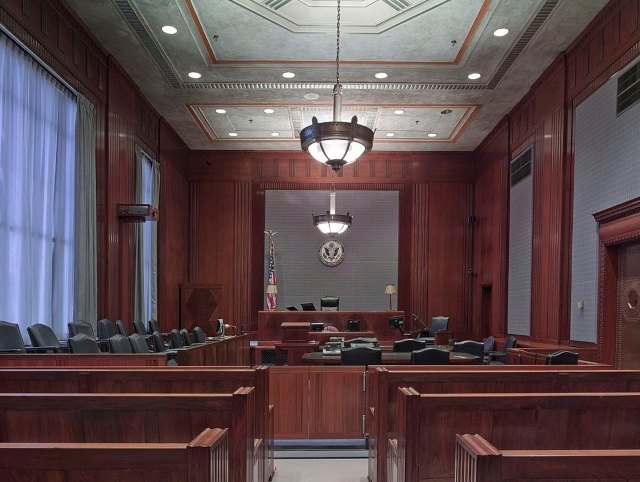Why You Need a Lawyer for Your Habeas Corpus Situation
Why You Need a Lawyer for Your Habeas Corpus Situation
Blog Article
Comprehending the Duty of a Post-Conviction Attorney in Looking For Justice After a Criminal Conviction
In the complicated landscape of post-conviction legal process, the role of a post-conviction attorney is critical in browsing the course to justice after a criminal sentence - montana federal habeas corpus. As the pursuit of justice prolongs past the boundaries of first process, the role of a post-conviction lawyer arises as a beacon of hope for those looking for to fix oppressions and reclaim their rights within the legal system.
Post-Conviction Attorney's Investigative Job
Post-conviction lawyers take part in careful investigative job to uncover brand-new evidence, step-by-step errors, or transgression that can possibly cause overturning a conviction. This investigative phase is critical in the post-conviction process as it aims to determine any type of neglected information or lawful errors that may have impacted the outcome of the initial test. Post-conviction attorneys look into case files, witness statements, and lawful paperwork with a fine-tooth comb, looking for any kind of discrepancies or irregularities that can be premises for allure.
With thorough examination, post-conviction lawyers aim to lose light on possible injustices that may have happened throughout the original trial. They might perform interviews, consult with professionals, and evaluation forensic proof to construct a compelling instance for their clients. By inspecting every facet of the lawful process, post-conviction attorneys work tirelessly to uncover any kind of factors that might have influenced the decision. Ultimately, their investigatory job plays an essential duty in the quest of justice and the potential turnaround of wrongful sentences.
Crafting Appeals and Petitions
In the pursuit of justice after a sentence, proficient lawyers diligently craft allures and requests to existing engaging arguments for the reconsideration of legal choices. Crafting allures and petitions calls for a deep understanding of the legal system, interest to detail, and critical thinking. Post-conviction attorneys assess trial documents, recognize prospective mistakes or infractions of legal rights, and develop legal arguments to challenge the sentence or sentence.
When crafting an appeal, lawyers focus on highlighting legal mistakes that may have influenced the outcome of the situation. They look into case law, statutes, and lawful precedents to support their arguments. Applications, on the various other hand, might entail presenting brand-new proof that was not offered during the test or demonstrating adjustments in the legislation that necessitate an evaluation of the conviction.
In addition, post-conviction lawyers need to follow stringent procedural regulations and target dates when submitting allures and petitions. They have to offer their disagreements clearly and persuasively to encourage the court to give relief to their clients. Via precise crafting of allures and applications, post-conviction attorneys aim to secure justice for people that have actually been wrongfully founded guilty or unjustly sentenced.

Seeking Post-Conviction Alleviation
Seeking alleviation after a sentence calls for a strategic and persistent approach by knowledgeable attorneys. Post-conviction relief encompasses a series of lawful mechanisms designed to challenge the validity of a sentence or sentence (louisiana federal habeas corpus attorneys). These avenues consist of submitting movements for a new test, pursuing charms, seeking writs of habeas corpus, and offering newly found evidence. Post-conviction attorneys play an important role in browsing these complicated procedures, guaranteeing that all legal choices are discovered to remedy injustices that may have occurred throughout the test or sentencing stage.
One typical kind of post-conviction relief is submitting a request for post-conviction alleviation, normally based on cases of inefficient support of guidance, prosecutorial transgression, freshly uncovered evidence, or constitutional offenses. These petitions require a detailed evaluation of the trial record, legal study, and influential advocacy to convince the court to provide relief. Experienced post-conviction legal representatives have the abilities and knowledge required to determine sensible lawful claims, conduct investigations, and existing compelling disagreements to protect alleviation for their clients. By faithfully pursuing post-conviction alleviation, these attorneys aim to deal with miscarriages of justice and maintain the concepts of justness and due process in the criminal justice system (Attorney).
Making Use Of Forensic Evidence
When testing a sentence or sentence, the calculated use of forensic proof can be an effective device in post-conviction lawful proceedings. Forensic proof encompasses a wide range of scientific strategies used to check out crimes and establish facts in court. Post-conviction legal representatives can take advantage of forensic evidence to challenge the legitimacy of convictions by offering new scientific searchings for that were not available during the original test.

Participating In Sentence Modifications
Post-conviction legal representatives might discover the opportunity of sentence alterations as a legal avenue to deal with out of proportion or unjust sentences passed on in criminal cases. Sentence alterations involve seeking adjustments to the terms of an offender's sentence after a conviction has taken area. These alterations can include reducing the length of a sentence, modifying the kind of punishment imposed, or checking out alternative sentencing choices.
Post-conviction lawyers can pursue sentence adjustments through numerous legal devices, such as filing movements for sentence decrease, appealing for caring release, or discussing appeal offers for minimized sentences. They need to thoroughly evaluate the situations of the situation, evaluate the legal grounds for seeking a modification, and existing compelling disagreements to the court supporting the demand for a modified sentence.
Engaging in sentence modifications requires a complete understanding of criminal law, punishing guidelines, and the specific treatments associated with seeking post-conviction alleviation. Post-conviction legal representatives play a critical function in advocating for fair and image source just results by challenging sentences that are unduly severe or do not line up with the principles of justice.
Verdict
In conclusion, the function of a post-conviction attorney is essential in looking for justice after a criminal conviction. Through investigatory job, crafting charms and applications, seeking post-conviction alleviation, utilizing forensic proof, and participating in sentence adjustments, these attorneys play a crucial duty in promoting for their clients and ensuring that their rights are upheld within the criminal justice system. Their devotion and competence are necessary in navigating the intricacies of post-conviction process and attaining a reasonable outcome for individuals encountering criminal convictions.
Report this page